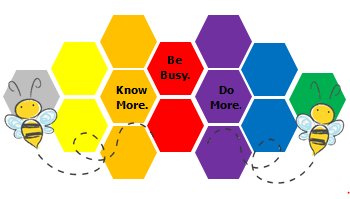Year 1 explored the question ‘What makes a good friend?’ as part of their ‘Friendship’ topic.


Here, Year 2 are exploring Hindu artefacts with Neetal Patel.

As part of their ‘Buddhism’ topic, Year 4 re-enacted the journey of Siddhartha Guatamata’s (Buddha) journey to enlightenment.

Here, Reception classes learn about dancing during Diwali with Neetal Patel.

Year 6 visited Blackpool Central Mosque here they enjoyed learning about Islam and learnt that Muslims stand shoulder to shoulder to represent that they are together as ‘one’ and nobody is better than another as everyone is equal.

As part of their ‘Worship’ topic, Year 5 compared prayer as an act of worship in different religions.

Year 4 finding out about the traditions of a Sikh wedding with Kash Singh.

Year 5 visited St Anne’s Synagogue where they learnt about their RE topic of Judaism.

As part of their ‘Worship’ topic, Year 5 compared prayer as an act of worship in different religions.

The children enjoyed learning about Hinduism and Sikhism during Faith Week.

RE
Why do we learn RE?
- RE helps us understand and be aware of other religions and cultures in Blackpool, the UK and the rest of the world.
- RE develops our beliefs and values and teaches us about respect and empathy.
- RE helps us actively understand other people’s points of view.
Intent
RE is considered an important part of a child’s education, especially their early education, because it allows young people to develop their beliefs and values. It helps children understand the place of religion and belief in the world. It contributes educationally to the spiritual, moral, social and cultural development of all pupils, whether or not they are from a religious background.
At Devonshire Primary Academy, we seek to achieve the aims of our whole school vision through a rich RE curriculum. High-quality RE will support and develop pupils’ religious literacy. Pupils will be able to make sense of religion and world views around them and begin to understand the complex world in which they live. RE at Devonshire is about enabling pupils to become free thinking and critical thinkers who can make informed judgements about the important matters of religion and belief which shape the global landscape.
Through our curriculum children will learn about different religions, belief systems, festivals and rituals and, whenever possible, they will be able to visit places of worship. RE can enable pupils to build their sense of identity and belonging which helps them flourish within their community. It also teaches pupils to develop respect for others, including people with different faiths and beliefs and helps to challenge prejudice. Within our teaching of RE we seek to encourage empathy, generosity, and compassion thus prompting pupils to consider their responsibilities to themselves and others and to explore how they might contribute to their communities and the wider world. Our aim is that pupils will have a depth of knowledge and have the ability to hold balanced and well-informed conversations and opinions about religion and worldviews.
Implementation
Our RE curriculum is ambitious. We address all aspects of the Lancashire SACRE curriculum but enhance this to cover a greater number of beliefs and visit each one more often. Knowledge is interweaved over a number of years and seeks to build a deep understanding as pupils are able to build on prior learning and bring a new maturity each time it is visited.
We begin with the religious aspects of our own community in Early Years and develop this further in Key Stage 1 as children begin to explore stories, customs, festivals and rituals of six major religions.
In Year 3 and Year 4 the curriculum builds on the foundation of religious knowledge and awareness. In Year 3, children explore the aspects of, “Who and Where?”, “Main Beliefs” and “Special Places”, in each of the religions: Hinduism, Buddhism, Judaism, Islam, Christianity and Sikhism. Children then revisit those beliefs in Year 4 and visit them in greater depth exploring “Special Festivals”, “Holy Books” and “Symbols and Meanings”.
Year 5 and Year 6 consider the impact of beliefs and practices in greater detail and respond to more philosophical questions. During this key stage, pupils are taught the knowledge, skills and understanding through deeper enquiry into known religions and, in Year 6, encounter secular world views through their study of Humanism.
Impact
At Devonshire, we envision RE curriculum impacting the pupils in the following ways:
- Extend their knowledge and understanding of religions and beliefs;
- To hold a wide knowledge and deep understanding across a wide range of religions and beliefs;
- Develop a religious vocabulary and interpret religious symbolism in a variety of forms;
- Reflect on questions of meaning, offering their own thoughtful and informed insights into religious and secular world-views;
- Develop a strong understanding of how beliefs, values, practices and ways of life within any religion cohere together;
- Explore ultimate questions of beliefs and values in relation to a range of contemporary issues in an ever-changing society; and
- Hold an ability to think for themselves and take initiative.
Surveys and questionnaires are used to gather pupils voices in relation to RE and, together with book scrutinises, observations and moderation, actions are targeted to further develop the RE curriculum.

